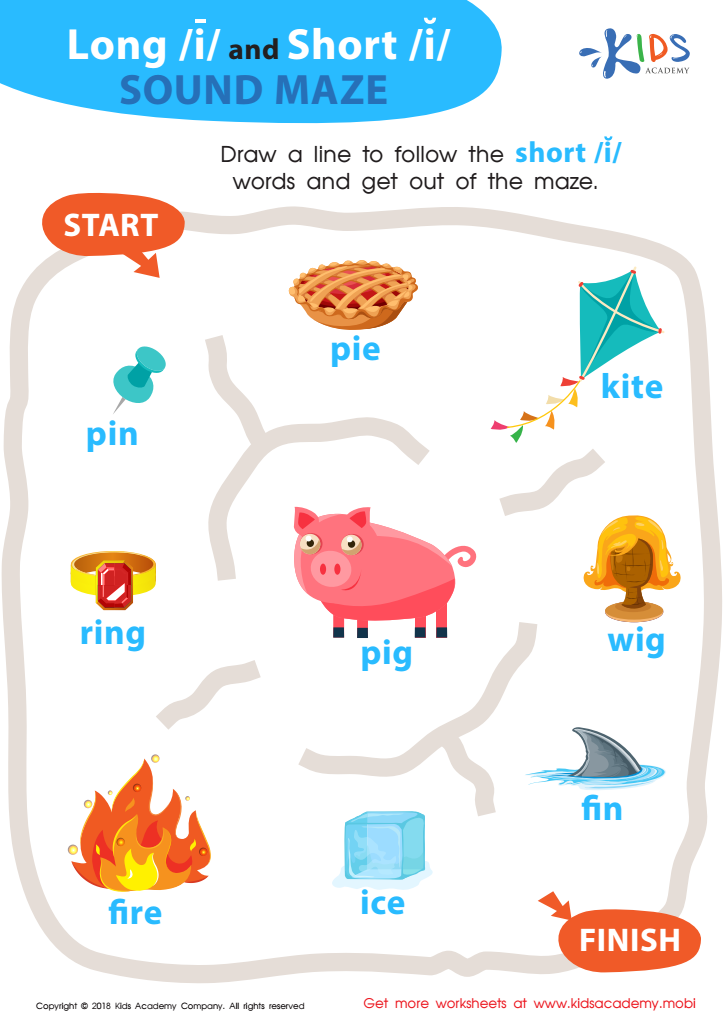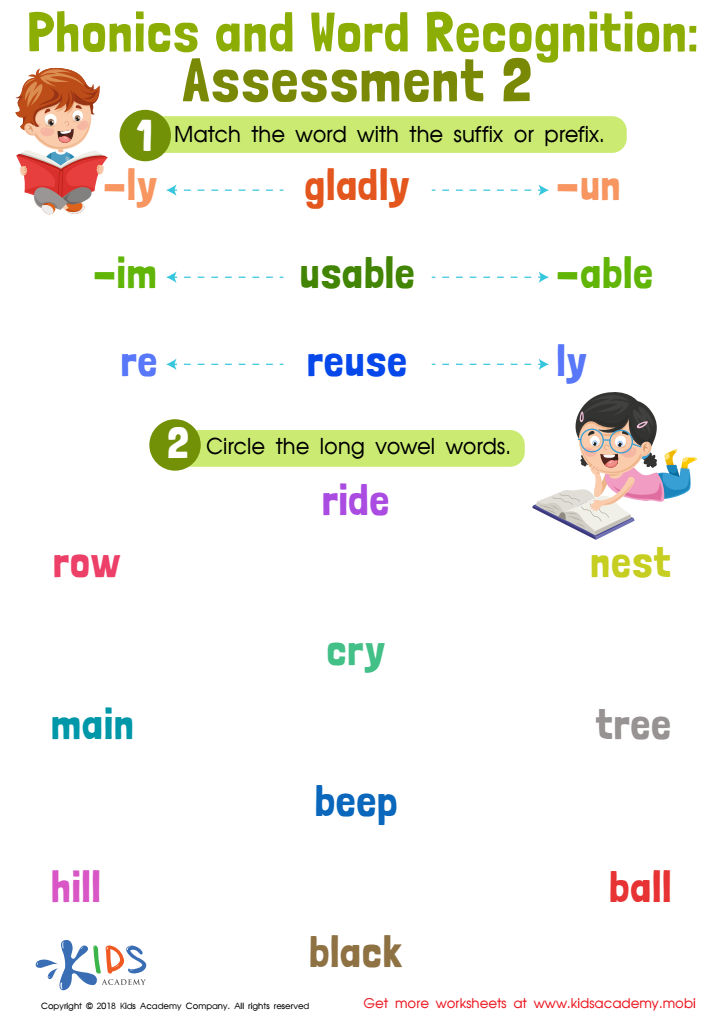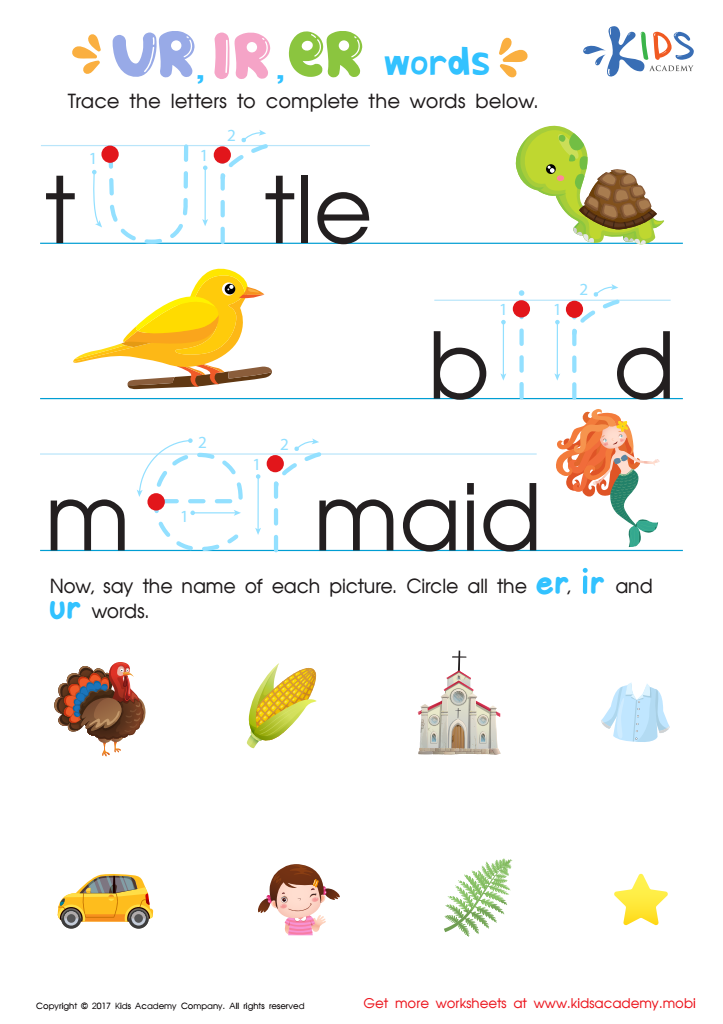Phonics recognition Phonics Worksheets for Ages 8-9
6 filtered results
-
From - To
Enhance your child's reading skills with our engaging phonics recognition worksheets designed for ages 8-9. These worksheets focus on helping young learners develop essential phonics skills through interactive activities and fun exercises. By practicing letter sounds, blending, and decoding words, children will boost their reading confidence and fluency. Our user-friendly resources cater to various learning styles, ensuring your child remains motivated and excited to learn. Ideal for both classroom and home use, these printable worksheets encourage independent learning while providing valuable phonics practice. Explore our collection today and support your child's literacy journey with effective phonics recognition exercises!


Phonics and Word Recognition: Assessment 1 Worksheet


Phonics and Word Recognition: Assessment 1 Worksheet


Reading: Long I and Short I Sound Maze Worksheet


Phonics and Word Recognition: Assessment 2 Worksheet


Phonics and Word Recognition: Assessment 2


IR UR ER Words Worksheet
Phonics recognition is a critical reading skill for children aged 8-9, significantly impacting their literacy development. At this age, students transition from learning to read to reading to learn. A strong grasp of phonics provides the foundation for decoding words, enabling children to understand texts more effectively. When children can recognize letter-sound relationships, they gain independence in reading, thereby boosting their confidence.
Parents and teachers should care about phonics recognition because it is essential for comprehending more complex texts that are introduced in later grades. As curriculum demands evolve, children need to access and engage with diverse literary genres, including fiction, non-fiction, and informational texts. A solid phonics foundation also supports vocabulary development, spelling, and writing skills, essential for academic success.
Additionally, effective phonics instruction can help identify and address reading difficulties early. Children who struggle with phonics may face long-term challenges in literacy, impacting their overall educational experience and self-esteem. By emphasizing phonics recognition, parents and teachers can ensure children develop essential skills that foster a lifetime love for reading and learning. Ultimately, investing in phonics is investing in children's future academic achievements and personal growth.
 Assign to My Students
Assign to My Students




















